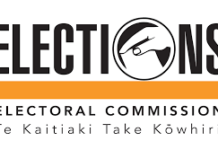VOYCE- Whakarongo Mai is the national advocacy agency for care-experienced children and young people. We dream of an Aotearoa where alltamariki andrangatahi live with love and mana. We’re all responsible to make this reality!
VOYCE – Whakarongo Mai is calling on political leaders to ensure all public debate about children and young people enhances their wellbeing and does not cause harm. While we acknowledge the distress youth crime creates in our communities, and we share these concerns, we are also worried about the unsafe and harmful environments that many children and young people in Aotearoa are experiencing which contribute to their offending.
Children and young people who offend have challenging backgrounds
TheYouth Justice Indicators Summary Report (April 2023) found that in the period between 2021/22, 92% of children and 88% of young people referred for a Youth Justice Family Group Conferences (FGC) had previously been the subject of a reportof concern toOranga Tamariki due their care and protection needs.Furthermore,a report released last year as part of the Royal Commission of Inquiry into Abuse inCare found that people with an experience of state residential care were five to nine times more likely to be incarcerated than people who had not had any involvement in the system.
Children and young people who offend report higher rates of mental health challenges
The Youth Justice Pathways (2021) report found that rates of mental health and substance use treatment appeared higher in the year prior to a young person’s first YJ FGC. The same report also found that young peopleinvolved in both the youth justice and the care system were more likely to be experiencing poverty, had to change address in the previous year, and began disengaging from school in the year leading up to the offending.
“A lot of young people who offend are experiencing poverty, have childhood trauma and are often self-medicating with drugs and alcohol.” Says TupuaUrlich, a staunch youth advocate with lived experience of the care system. “It leads to a vicious cycle and one which can bring about feelings of hopelessness. For many of our young people mental health is a factor, andyet access to mental health support is not easy, and there’s massive stigma around that, soit’s hard to see a way out whenyou’re stuck in that cycle, and that cycle stems from the gap’s that exist in our system.
We need our leaders to acknowledge the complex challenges that young people who offend are facing. Yes, in some caseswe’re seeing violent offending, but let me ask you this: What happy person wakes up and saysI’m going to rob a shop? Allyou’re seeing is the violence, butthere’s always more to the story.”
Children and young people who offendshould inform solutions
VOYCE -Whakarongo Mai believe that the voices of children and young people involved in the youth justice system should be at the centre of any conversation about youth crime.
HamishFalekaono who has first-hand knowledge of the youth justice system is concerned that decision-makers are not listening to the voices of children and young people when developing solutions.“Manyrangatahi before us have highlighted the underlying issues that surround the “why” to their offending. Tamariki are just children, normal humans, who require the same attention and unconditional love, just as every child should get. However, in the midst ofwhat seems to be a political battle between political parties vying for votes, there seems to be more interest in securing the public’s vote than creating solutions.”
“Instead of focusing on criminalising minors for behaviours they don’t understand, let’s help them understand.” Says JenniferThonrithi, who grew up in state care and now advocates for other young people in the system. “Most of these young people come from violent homes that lack support and are filled with hostility. The young offenders we see today could easily end up as statistics in the future for crime, suicide, domestic violence, and even homelessness!”
To be effective in creating meaningful policy that can change the direction of these young people’s lives Jennifer believes that political leaders need to do more to understand the context behind offending. “Instead of making assumptions,let’s start asking more questions since, unlessyou’re in their position, youcan’t understand why. How can you promise support andassist them in the greatest way if youdon’t know why?Let’s start talking to these young offenders as humans because at the end of the day many are just lonely kids that lack positive supports.”
Solutions need to focus on healing rather than punishment
Tupua acknowledges that there are cases where young people may need intensive support to prevent harm to themselves and others, yet he emphasises that current approaches and punitive measures (such as boot camps and youth detention centres) are not the way forward.Infact, it is widely documented that such measures are not conducive to a reduction in offending, andrather that incarceration is harmful to the mental health and wellbeing of young people, with an increased risk of negative behaviour and furtheroffending.
Tupua is concernedabout any youth justice response that prioritises punishment and institutionalizing young people. He believes there needs to be a stronger emphasis on providing them with the care and love that they need to heal and addresswhat’s going on in their lives. “Environments that are akin to prison,that’s not what they need,that’s notwhat’s going to work. These young people belong in a home, not a facility”.
Tupuaalso believes that when young people leave the justice system, they must have a safe,stable, and supported environment to go back to. “Currently, what we’re saying is we’ll hold you, and then release you into the same environment that led to the offending in the first place. We’re institutionalizing our young people on the basis that our governmentcan’t find them a home. When they get out,it’s a struggle to re-adjust to society, andit’s not too long before they end up right back in there again.”
Communities are best placed to respond
Tupua emphasises that we all want to live in happy and safe communities, and that this is no different forchildren and young people who offend. The solutions, he says, are in the community.
“I think we need to go back to community. These young people and these issues are in our communities. Of course, our communities want to play an active role in ensuring safety.
Where there isreal violent offending,that’s an issue of identity. For me culture worked, once I knew who I am, whose I am, and how I can contribute to my community, things changed for me. The Government needs to prioritize culture as a key to wellbeing. Everyone deserves to belong and feel connected. The sad reality is, many of these young people involved in this offending, theydon’t know their own story.”
Tupua would like to see a focus on Kaupapa Māori solutions andTe Ao Māori. He believes there is so much to be gained from viewing connection to culture as critical to wellbeing. “I think of a marae, that environment is open, you come in when you need support, there are whānau and professionals who can wrap around support you, that is the image we need to have in mind when designing systems for our young people.”
As debate heats up leading to the election, VOYCE -Whakarongo Mai calls on all political leaders to place the welfare of children and young people at the centre of the conversation. Rhetoric, policy, and debate should not further harm or stigmatise children and young people. These young people are part of our communities, and we all have responsibility in ensuring they receive the care and support they need to thrive. Rather than punitive rhetoric and policies that are proven to do little to improve public safety, our public kōrero should be focused on ensuring that every child and young person in New Zealand is able to live with love and mana.




